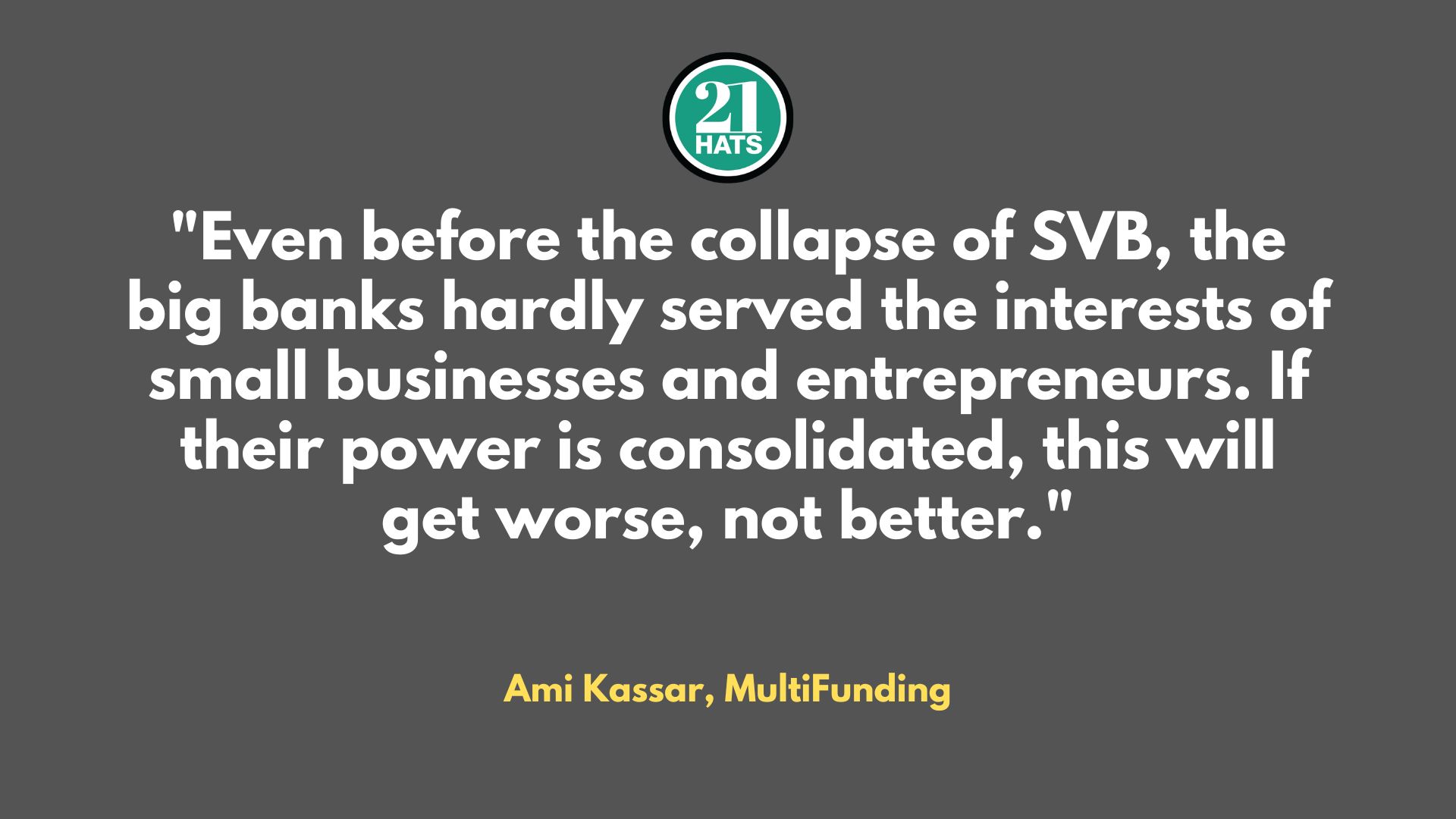Take a Breath Before You Move to a Big Bank

Can you Imagine what it will be like if consolidation takes the banking industry the way of the airline industry?
By Ami Kassar
If you believe the press reports, there is a massive amount of cash moving out of smaller and regional banks and into the largest banks in the country. And while I can’t see actual deposit data, I can see that the market caps of many banks I consider excellent and stable have been highly volatile over the past few days – probably driven by short sellers trying to take advantage of the situation.
The situation is frightening. Can you imagine a massive bank consolidation, where the banking industry turns into a version of the airline industry? Having a handful of banks to pick from instead of thousands would be an awful situation for business owners and entrepreneurs. Relationship banking would disappear, and we would have only robots to help us. Even before the collapse of Silicon Valley Bank, the big banks hardly served the interests of our communities. A recent informal survey of MultiFunding clients and contacts found that more than 60 percent of small and midsize businesses that use big banks are either dissatisfied with their bank or very dissatisfied (You can still take the survey). If the big banks’ power is consolidated, this will get worse, not better.
Remember that your banking relationship is bigger than where you put your deposits. All businesses should have a line of credit, and most businesses will want to borrow money from time to time. You want to have a relationship with your bank and not just be a number on their production line. You want them to understand your business and be there for you in good times and bad. Ideally, you want someone on your speed dial who cares and can make a difference.
As I mentioned in my column over the weekend, I strongly encourage everyone to take a deep breath. If you have deposits in your accounts of less than $250,000 you have nothing to worry about. And even if your deposits are greater than $250,000 you probably have nothing to worry about. My advice is to call your bank and ask them what they do through insurance or other instruments to protect deposits greater than $250,000.
I am far from an expert on all of the tricks they have at their disposal, but I am very familiar with the IntraFi network. With IntraFi, more than 3,000 banks can sweep individual deposits of more than $250,000 to different participating banks overnight, creating options for many millions of dollars of FDIC insurance. You can still manage all your accounts in one place, but you have the comfort of knowing that your money is safe. You can find out if your bank participates in IntraFi here, and then if you are interested, you can discuss with your banker whether your account has opted-in for the service. The bank might charge a small fee for participating, which you should consider the cost of insurance.
There are other questions you could ask your banker. For example, are their loans well diversified? What’s the ratio of fixed-rate loans to variable loans? How do they generate deposits? Are they from the communities they serve or from more significant dollar transactions? Do they invest in treasuries, or are they liquid? What is their ratio of deposits to loans? I wish I had a specific formula or rating to share with you as to what to look for. Ideally, though, you want to see a well-diversified business base.
I know these questions are wonky, but can your banker make you feel comfortable and demonstrate that their institution is sound and safe? To reiterate, the three banks taken over recently are outliers. Most community banks are safe and sound. And unless you want to feel about your bank the way you feel about the airlines, we need smaller banks to help entrepreneurs and small businesses thrive. So please do your homework before joining the hysteria.
Ami Kassar is CEO of MultiFunding.